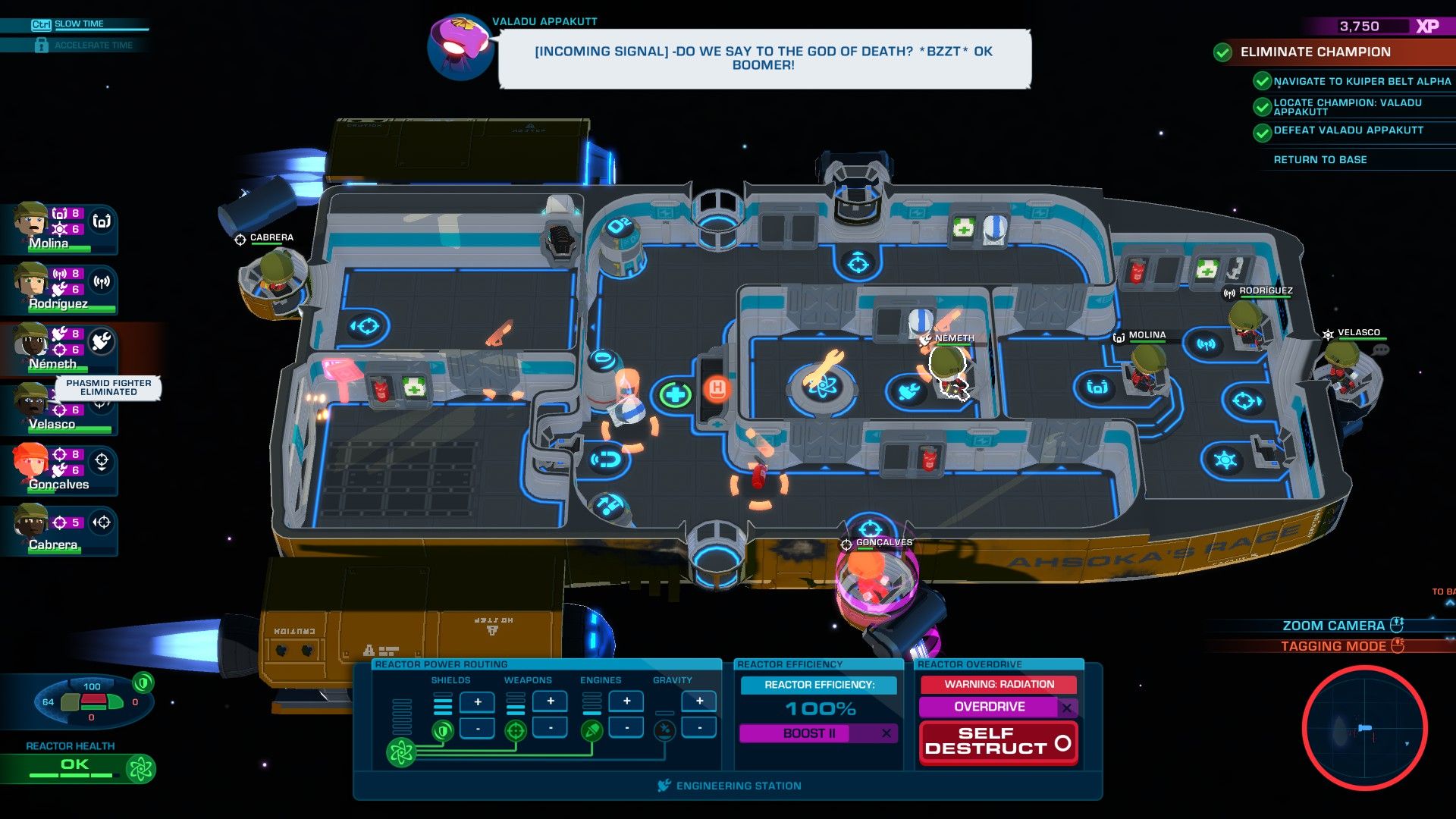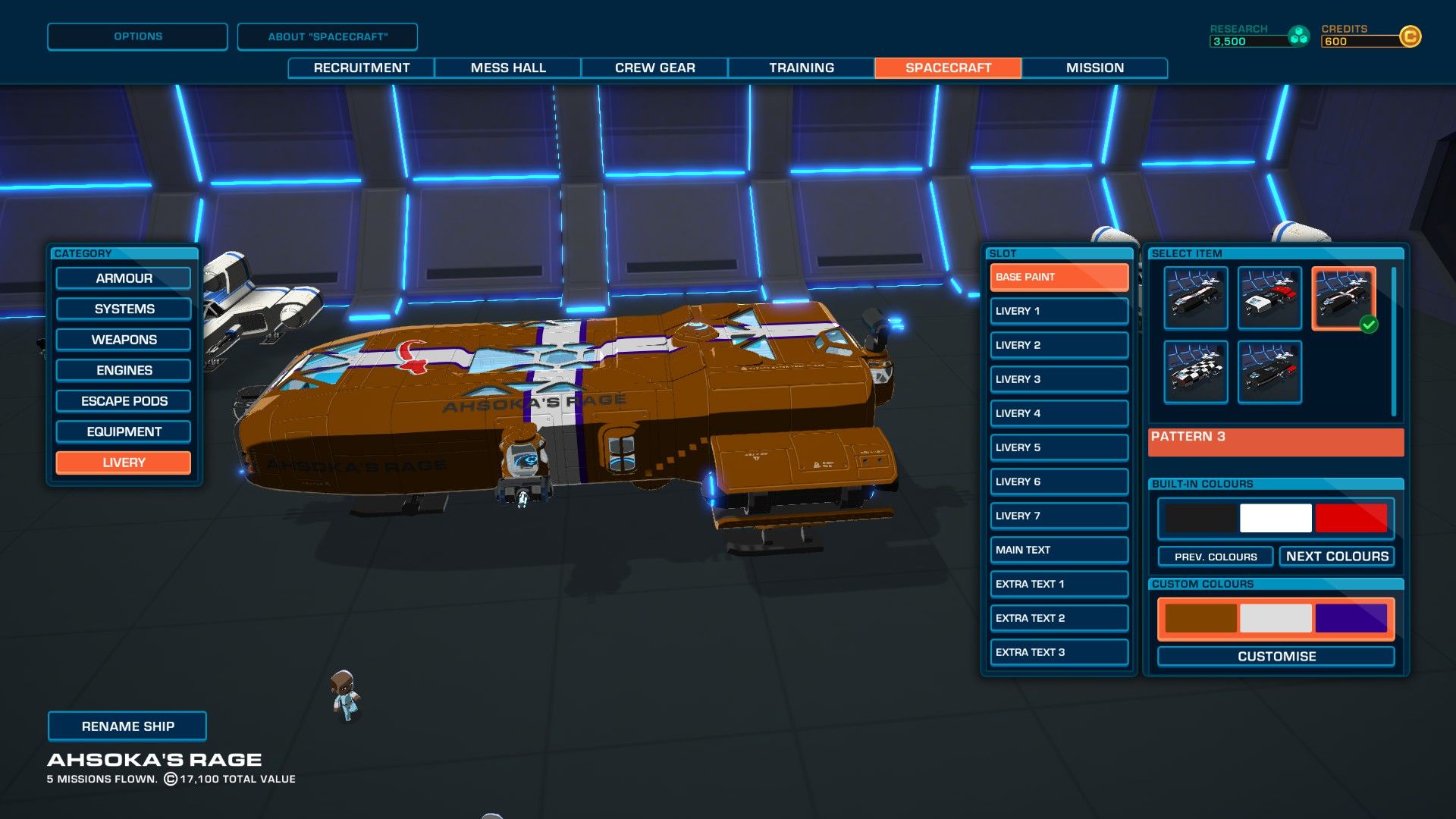The crew management action sim rarely sees an entry comparable to that little-indie-that-could, FTL, a game which exceled despite its low-resolution graphics and limited scale. Some of that’s due to how FTL’s various systems carried each other, with storytelling, RNG, and navigational mechanics all factoring into its permadeath thesis, masking some of its stiffer crew behaviors. Space Crew, on the other hand, bogs itself down with stale mission variety, heinous camera controls, and a shallow gacha game feel – though, to be clear, the game has absolutely no microtransactions.
Sci-fi games among various genres can lean on a sense of character or some worldbuilding, two other areas where Space Crew falters, but everyone doesn’t need some wildly original concept to get excited about managing Star Trek cadets. Still, Space Crew’s narrative is bare (and otherwise clumsily scribed), as if its developers expect players to just know the tropes, blurting out a setting where humanity now contends with a seemingly unstoppable alien threat known as Phasmids.
Fighting off Phasmids requires that a team of six progress through a series of missions at their own pace. Space Crew features nothing in the way of imaginative crew experimentation, with a complete roster always comprising a security and comms officer, two weapons officers, an engineer, and a captain. The player micromanages this mostly braindead team, nudging them to consoles, pointing out literal and figurative fires to address, and dispatching alien threats.

After a lean and lackluster tutorial, Space Crew opens its mission rolodex, found at one of several menus at the space station and ranging in difficulty from low to medium risk. More challenging quests eventually appear – some follow plot-relevant successes, others endlessly recycle – but so much as testing a medium-risk mission before a crew is properly ready typically results in a complete and demoralizing wipe.
Multiple systems in Space Crew don’t function as one might expect. Ship components allow discounts for upgraded modules once unlocked, but downgrading means paying full price. An occasional death can be managed with the remainder crew carrying a replacement rookie onward, but a total wipe means starting again from square one, reclimbing lower-risk missions before pushing the main plot forward.
It’s all incredibly grindy, and while it’s true that research unlocks persist, re-purchasing starship and crew gear is expensive, and there’s no convenient solution for replacing experienced officers. Furthermore, Space Crew centers much of its gameplay on officer skills, which are essentially cooldown abilities that unlock with level-ups, like evasive piloting for captains and shield boosting for engineers. Rookies, though, lack any skills, dragging fellow able crewmates down. Skills activate by selecting an officer and clicking each one at the right time, and illogical mechanics – like how officers with an activated skill completely deactivate and reset it if they leave their post for any reason – need to be internalized through trial and error.

Aside from such confusing gameplay minutiae, the controls are also a distinct sore spot. Reviewing Space Crew on PC meant choosing between keyboard/mouse and controller inputs, neither of which were ideal for its tagging system. Essentially, a special camera mode is used to target waypoints and enemies which indistinctly centers the player POV for seemingly no reason, and the default ship view is just close enough that it always obscures one or two crewmembers, so resetting the view always requires a slight nudge every single time. Targets are focused with the tagging camera after a few seconds, which can cause old waypoints to mistakenly activate during feistier space battles, a distinctly irritating and unforgivable quirk, especially when Phasmid ships seem to infinitely respawn in most sectors.
Again, though, Space Crew is primarily a resources game with just a bare whiff of real-time strategy. So long as players upgrade the ship, level up crew, delicately increase mission difficulty, and select the best gear within the budget, the story will predictably progress. Every mission takes entirely too long and most are virtually identical: go to a place, fight Phasmids along the way, return home safely. The occasional and more interesting outlier – like a fun story mission where players take down a complicated enemy mothership – are few and far between, though they hint at what Space Crew could have been.
A distinctive problem with Space Crew is that so little changes from mission to mission, chapter to chapter, and death to death. Layers of grind do not serve as satisfying gameplay loops on their own, requiring some context or chaos at least, something more inspired than that grind for its own sake. It’s a fine distraction while a podcast murmurs in the background, but Space Crew ultimately lacks the spacefaring goods regardless of how it’s consumed.
Space Crew releases on October 15 for Steam for PC and Mac OS, PlayStation 4, Xbox One, and Nintendo Switch. A digital PC code was provided to Screen Rant for the purpose of this review.




